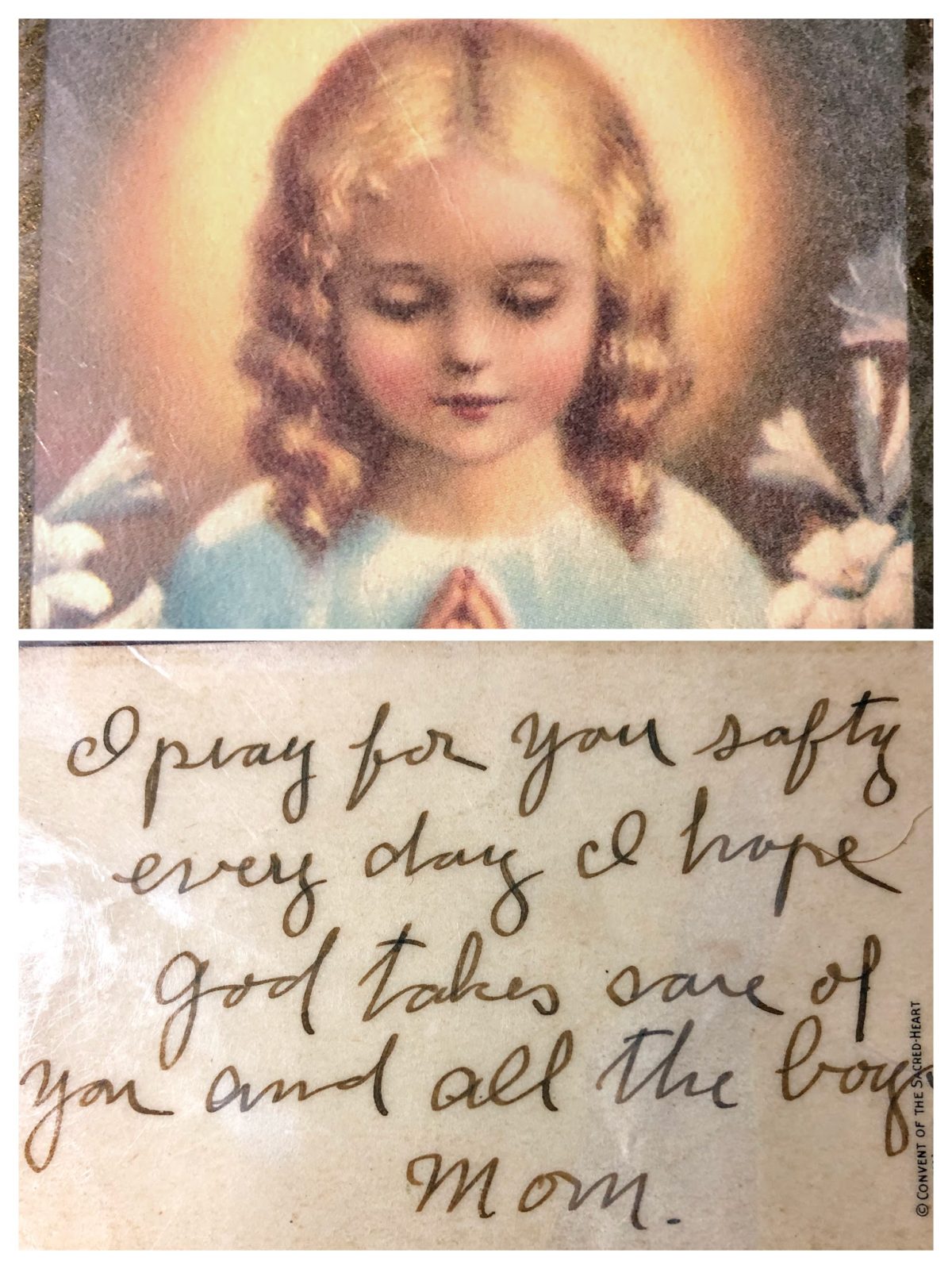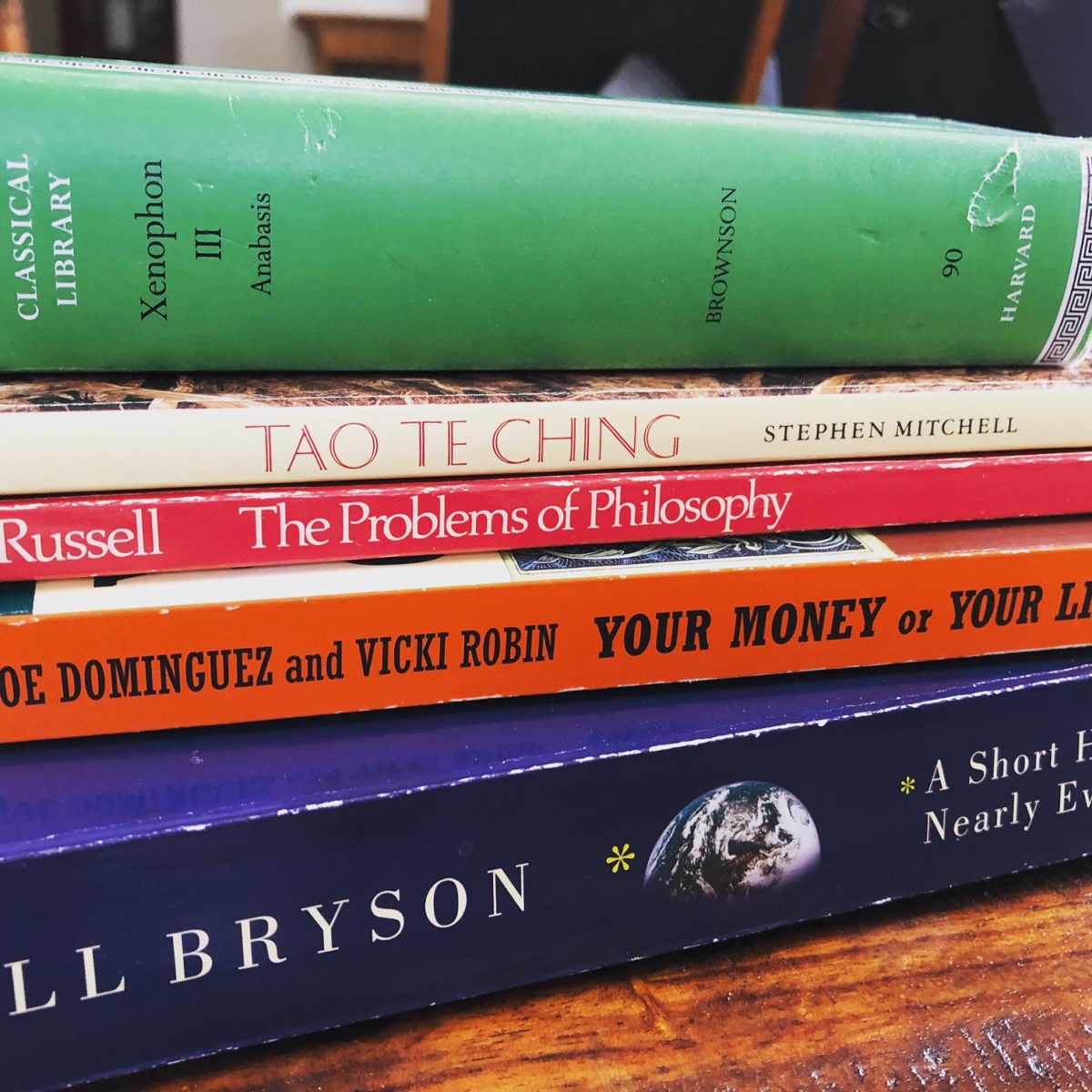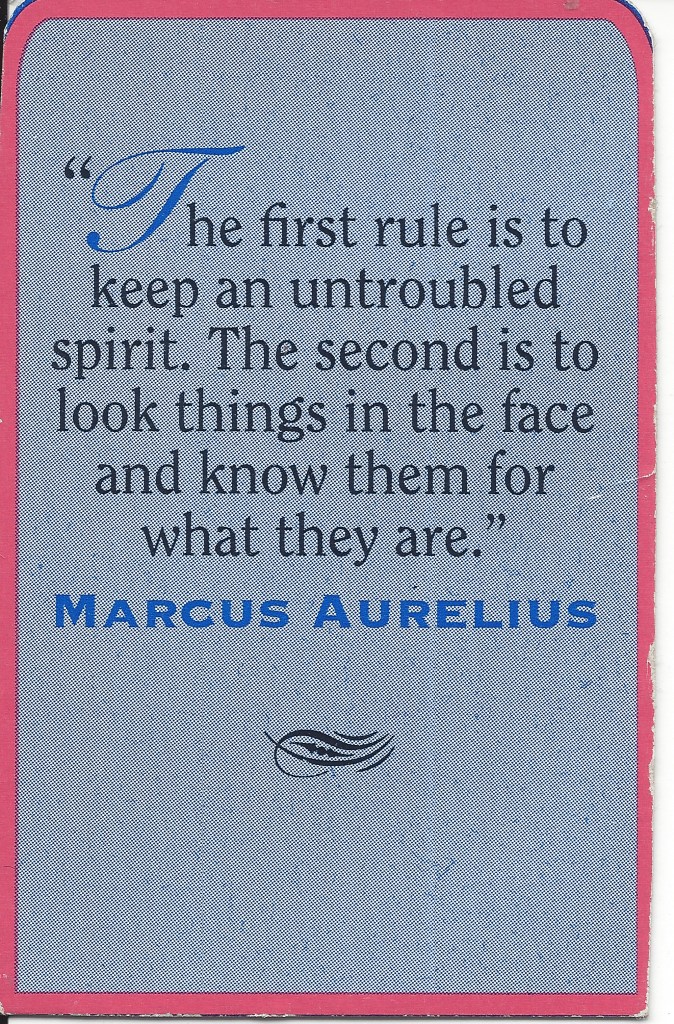Day 8 of the Daily Stoic‘s 14 Day Stoic challenge take a page from Marcus Aurelius’s book Meditations, literally.
Meditations is a classic of stoic thinking, and famously the first book starts out with Marcus’s reflection on and acknowledgement of all those to whom he owe some part of his own character, knowledge, and success. Think about this – when he was writing this, Marcus was the Emperor of Rome, at the pinnacol of his own life, at a time when the Emperor was thought to be ordained by the Gods, and even a god himself. Yet here he is writing to himself (Meditations was his journal for himself, there’s no indication he expected it would ever be read by someone else) and he’s exhibiting the humility to remind himself that he owes great debts to many people who made him who he was at that moment. How many people have we run into in our own lives who think they are God’s gift to [whatever]? I believe we Americans are especially prone to this with our mythology around the Self Made Man Person. But are any of us, really? Not very likely.
Even such an individualist as John D Rockefeller had this to say:
The success of each is dependent upon the success of the other.
The top of my list has to be my grandfather, though I called him Gink. And because of that, in time everyone did. Gink was my father figure and taught me so many lessons it’s hard to enumerate them all. In fact I have been working on a short book for my children on everything he taught me. Above all though I feel he taught me the value of a hard days work, humility, and the important of having a sense of humor.
My mother who taught me how to cook, and always believed in me, told me I could do anything and go anywhere (I think she regrets that last part).
My sisters who showed me the power of having a sibling you can always call, and who always understands.
My best friend Phil. We spent so much time together growing up it seemed like we we almost brothers. He showed me there was no shame in being smart, and that you can live by your own rules. And that friendship can last across time and distance. You know that friend who you can talk to after years and it’s like no time has past? That’s Phil.
My other best friend Dave. Thick as thieves we were at times, Dave was more loyal than anyone I ever knew, and he literally stood at my side for one of the hardest things I ever had to do. And while discretion may be the better part of valor, Dave taught me sometimes it is better to stand and fight.
My late friend Pam, who always had a positive attitude, who always believed in me, as she believed in our whole high school class. In reading all the remembrances of her, I think her super power was that she made everyone feel that way.
All my other hometown friends who helped make me who I am. At times we laughed, cried, fought, played, skipped school, worked hard, studied hard, partied hard, practiced, made things, broke things, and just hung out together. I wouldn’t trade having been a Westie for anything.
My high school physics teacher, Rocky Tremblay, who showed me the wonder of science in the form of physics, and that learning could be fun. I still have my copy of the Dancing Wu Li masters, and I still feel that sense of wonder every time I think about the single particle double-slit experiment. (and while writing this, I came across an article about where his inspiration to teach physics came from, which is a lesson that in helping or inspiring one person, you may affect the lives of many.)
All my sports coaches, who taught me that hard work and practice, practice, practice, pays off on the ball field.
My drill sergeants and senior NCOs, who taught me that hard work and training, training, training, pays off on the battlefield.
Abhilash Karanth. Early 1996 I was happily working at Andersen Consulting (now Accenture) when a headhunter convinced me to take a trip up to Cambridge, Massachusetts to interview with a small technology start up. While I met several impressive people at Sapient that day, it was my interview with Abhilash, and his unbridled enthusiasm for the work he was doing, and his commitment to the company’s mission that sold me. And that changed the trajectory of my life.
All my project and pitch teams, we’ve done so many impossible things, I am always inspired by their willingness to believe in ourselves, and just go make it happen regardless of all the naysayers.
My children, who have taught me what it is like to love unconditionally, and to take joy in experiencing the world as a child again. To see things anew, to rethink and re-evaluate my ‘position’ on things, and to question our own convictions, if only to make them stronger and more grounded.
And above all, my wife, who has been my partner and friend though all my crazy adventures. She’s taught me many things, including the simple joy of having someone to walk through life with.
This represents a small portion of all the people I owe a debt to and I may add to it from time to time.


